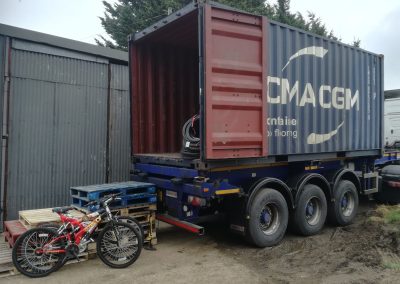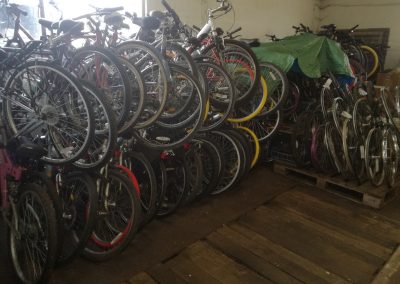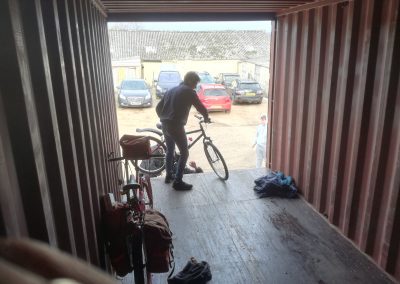Overseas Projects
We have supported projects across four continents, contributing to the health and welfare of economically deprived communities and helping to protect unique habitats and their biodiversity. Please note, we are only able to consider charities registered in the UK.

Many children miss out on the opportunity for a better future.
We are working to change that.
Malawi Schools Trust believes that education leads to opportunity. We are working in rural Malawi to provide secondary education to the community of Mikuyu, as well as supporting the work of local primary schools. This is a significant challenge: Mikuyu is isolated (75 sq miles, 300 houses, no trading shops) it has limited access on dirt roads and until our involvement faith in the local school had diminished. Through a shared partnership involving the local Chiefs, Elders, the Mothers Group, local educators and the students we have agreed community needs and then acted together to implement them. This has, in turn, led to greater confidence in the community to lead their own development ideas and to fully support our partnership.
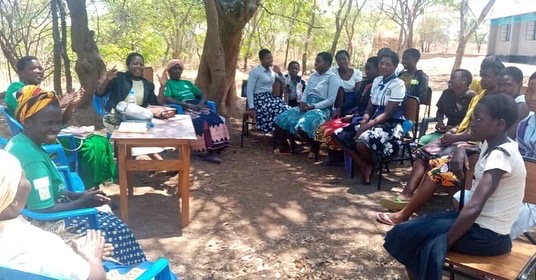
Over three years working at Mikuyu MST has installed a new water hole, we have built a new administration block, completely renovated the classrooms, renovated existing staff houses, installed solar power panels to provide lighting in the classrooms and this year completed new staff houses. Along side these physical developments we have also engaged the community in a programme supporting girls through menstruation, we have delivered materials to local primary schools and jointly planned the next stage. The future plans will include introducing a mentoring programme for students to help them to aspire to life beyond school, widening access to the menstruation programme and provision of cups, and then assessing the feasibility of new projects which could include a girls residential hostel, small scale support for local agriculture and looking to further increase the overall number of students accessing secondary education at Mikuyu.
Read more
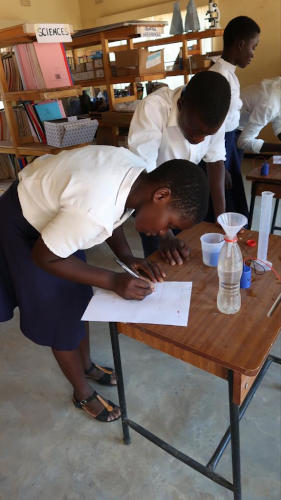 In answer to the wider question posed by your Trustees: “My only question would be what is the follow through with the kids? Can they do anything to improve their job prospects or even create community projects that offer employment?”
In answer to the wider question posed by your Trustees: “My only question would be what is the follow through with the kids? Can they do anything to improve their job prospects or even create community projects that offer employment?”
We are undertaking ‘follow through’ in Mikuyu by establishing a mentors programme, led by a former female student on her career and how she has succeeded, a deputy Head teacher and by a local medic who is keen to give his insights to the young men of the area on how to go beyond secondary school. We have also been focussed on improving the education and life experiences for the young women of Mikuyu. We have a ‘menstruation programme’ in place and well established. It is led by a local senior teacher and delivers education and some supplies to the girls – so that less time in school is lost due to menstruation. In addition this programme has benefitted many of the mothers in Mikuyu, who also want support themselves, but who have helped us in encouraging the girls back into education after the pandemic. Girls education is intrinsically beneficial, even if one cannot ‘promise’ post secondary opportunities, we still feel that these young women will be better prepared to avoid child marriage, early pregnancies and will be more confident to look beyond their expected lives as subsistence farmers.
As a Board, Malawi Schools Trust have been discussing the huge issue of job prospects and community projects. In the area of Mikuyu there is no obvious employer and Malawi faces a national problem of employment, engaging young people beyond school and also raising ambitions beyond subsistence farming. It is early days for us as a trust in facing these issues, however we have been hugely encouraged by the response of the Mikuyu community to the work we have already done, and their desire to lead further change. The local Mothers Group are looking for our help with seeds, to improve their income generation and with the extra money to invest that back into the community. The local Chief has been strongly advocating the building of a girls residential hostel to improve the educational opportunities of the local girls – we also see this as an opportunity to employ local people in supervision of the girls and in developing a vegetable garden. We see helping locally with small scale agri-business as the best prospect for improving the local economic opportunities.
We have really valued the input from generations Trust, your help has enabled the building of two staff houses. If you felt it appropriate Peter and I would welcome the chance to discuss his recent visit to Mikuyu and the MST plans that have come out of that, as I set out above we feel the building of a girls residential hostel to be the next major project, possibly housing up to 20 girls.
Thanks again for your support, engagement and interest in our work.

Prodigal Bikes is a charity that brings hope and changes lives in both Africa and the UK.
Prodigal Bikes is a small charity based in the South West of England. They formed in 2016 and have been steadily growing since. Volunteers collect unwanted mountain bikes donated by the public and bike shops. They refurbish and upgrade them to make them simpler and more reliable, then export them to remote parts of Africa, where they are given to children, teachers and patients to enable access to education, employment and healthcare. To date the charity has shipped 245 bikes to Kenya and 130 bikes to Malawi. Their trained mechanics in Africa have kept nearly all of the bikes running.
At their workshop here in Somerset, they work with a homeless outreach organisation The Link, Martock Christian Fellowship and the Somerset Youth Offending Teams. The people they refer learn technical skills as they prepare the Prodigal bikes for Africa, which in turn can help them into employment in the UK.
The dual focus gives local ex-offenders, long term unemployed people and excluded school children the chance to work together, learning new skills to provide for those experiencing extreme poverty and exclusion from employment, education and healthcare in Africa. Some of those supported by Prodigal have gone on to work in the construction industry and one as a guitar maker.
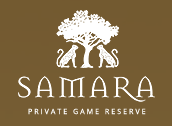
Graaff Reinet
South Africa
Samara Private Game Reserve is located near Graaff-Reinet in the Eastern Cape, South Africa. Previously a network of 11 livestock farms, Samara was created in 1997 with the vision to restore the area to its natural state. It’s commitment to local young people is where our involvement starts.
Address: Petersburg Road Off the R63 to Pearston, Graaff-Reinet, 6280, South Africa
www.samara.co.za
Samara is a private game reserve in the fifth oldest town in the eastern cape of south Africa. In 2018 the Finch family ( among others) arranged a football tournament for young people in Graaff Reinet to celebrate heritage day. Both Football and Netball teams competed in a knockout tournament with finals being held on Heritage day itself. The aim was to support an initiative by Annerly Gradwell to provide a platform for young people to see a future for themselves. The first event was a great success so repeated in 2020. Getting children off the street is just one of the challenges faced in Graaff Reinet and this initiative supported by many local business offers a great way to introduce the 630 young people who participated to the positive benefits of sport.
Right to Dream
Ghana
Sierra Leone
Right to Dream is a professional sports, education and leadership academy in Ghana. It provides young underprivileged talent an opportunity. Through their elite training programmes, international education, personal development and leadership philosophy they nurture the exceptional into future role models for Africa.
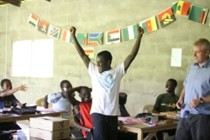
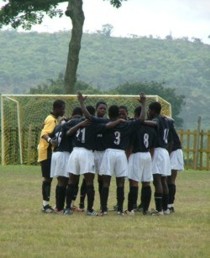
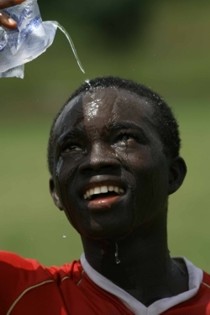
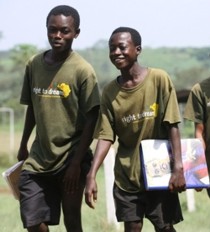
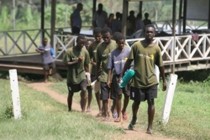
The Academy in Ghana is a non-profit making, fully residential school which offers 100% scholarships to children aged 10 and above. At the Academy they are focused on EVERY child achieving success and reaching their true potential, using the skills and knowledge they teach them and the experiences they offer, to build a better life for themselves, their families and their communities. Generations have supported Right to Dream over a number of years and will continue to do so.
The Right to Dream Underprivileged Children’s Centre (UCC) is a drop in education and welfare centre for some of the poorest children in Ghana, many of whom are street children and orphans. The UCC teaches children the basics in numeracy and literacy, getting them to a point where they can then attend school. Local schools are then identified and the costs of sending the children to school are met by the UCC which also provides ongoing support to those children.
- Right to Dream have been able to further develop the partnership between the Academy and the UCC, for example now the Academy pupils assist with teaching on a weekly basis at the UCC.
- At the UCC, a permanent home has been found for the centre which allows a number of the homeless children to live on-site, as well as providing flexible teaching spaces which meet the needs of the children attending the centre
The right To Dream Academy has 51 Student-Athletes at world leading institutions and 38 professional footballers living their dream.
The Finch Family Reserve
Chaco-Pantanal
WLT has been working with local partners Guyra Paraguay to create the Chaco-Pantanal Reserve, in response to the increasing level of threat faced by these unique habitats and their biodiversity, particularly from agriculture, development and pollution. Located in north-eastern Paraguay, the 15,000 hectare reserve area encompasses Palm Savannah (dry forest), Chaco Grassland, and Pantanal Wetland. The Generations Foundation has been a key supporter in this initiative, providing funding to secure 3,081 hectares of habitat, approximately a fifth of the whole reserve. This now forms the “Finch Family Reserve”.

Jabiru Storks, the largest stork in the world, are typical of this habitat and easy to see
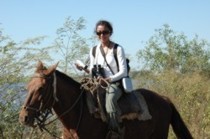
Rohini Finch of the Generations Foundation sets out on horseback to see the Reserve.
The Finch Family Reserve forms the southern boundary of the reserve, and lies on the river confluence at the borders of Brazil and Bolivia.
The annual flooding of the Pantanal wetlands provides a vital habitat and food supply for migrating birds from across the Americas. Year-round, it supports endangered species including the ‘Three Giants’: Giant Anteater, Giant Otter and Giant Armadillo. The reserve’s Three Giants biological station takes its name from them, and provides a base for international research.
Campo Iris
Dry Chaco, Paraguay
Working with local partners Guyra Paraguay, and with support from Generations Trust, World Land Trust (WLT) began fundraising for the purchase of the Campo Iris Nature Reserve in 2007. In early 2009, Campo Iris received official recognition from the Paraguayan Government, giving it the status of a Private Nature Reserve.
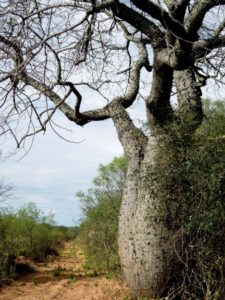
The Palo Borracho or ‘Drunken Tree’, Campo Iris
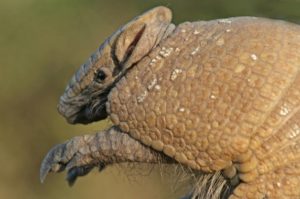
Southern Three Banded Armadillo, Campo Iris
Campo Iris is now a reserve of over 8,500 acres in Paraguay’s Dry Chaco, an arid habitat of highly impenetrable thorny forest, including the distinctive Palo Borracho (Ceiba chodatii). This species is also known as the ‘Drunken Tree’ due to its swollen trunk, adapted to retain water in the arid Chaco.
Large mammals of the Chaco include Puma, Lowland Tapir, Giant Anteater and the world’s greatest diversity of armadillos. Important for all these species, Campo Iris protects the only water source for many miles, making local wildlife dependent on the reserve for its survival.
World Land Trust
Blyth House
Bridge Street
Halesworth
Suffolk
IP19 8AB
Based in rural Suffolk, World Land Trust was founded in 1989, as a UK fundraising charity helping save tropical forests in Belize. As a result, Programme for Belize was able to purchase over a quarter of a million acres of tropical forest for conservation.
Since then, WLT has raised funds to purchase and protect over 774,000 acres of threatened habitats across the world, with projects in countries such as Argentina, Brazil, Colombia, Ecuador, Mexico, Paraguay, India, and Armenia.
WLT always works with local partner organisations who take on ownership and ongoing responsibility for protecting and managing the reserves. WLT also helps promote sustainable and environmentally friendly livelihoods for local communities, such as ecotourism, crafts and sustainable forestry, and supports reserve protection across its partners through its ‘Keepers of the Wild’ (ranger) programme. The intention is always for projects to become independent from WLT and continue to thrive on their own, protecting wildlife and its habitats for the future.
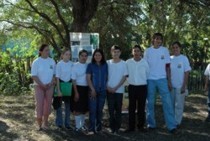
Bahia Negra is the nearest community to the Chaco-Pantanal Reserve and the young people who live there run an extremely vibrant Eco-Club.
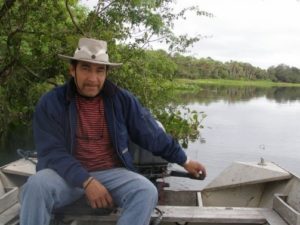
Keeper of the Wild Asterio at the Chaco-Pantanal reserve.
Generations first became involved in 2007 with their donation to support WLT’s overseas partners, Guyra Paraguay, in purchasing critically threatened Pantanal habitat in Paraguay, with further support for the Eco-Club in the local town of Bahia Negra. Generations has gone on to support the Dry Chaco reserve at Campo Iris and, more recently, WLT’s Keepers of the Wild initiative. This provides more rangers for the new reserves, strengthening protection for the habitat and its wildlife.
Second Sight
8 Battledean Road
London
N5 1UZ
Second Sight is a small, focused sight charity with a formidable track record since its inception in 2000.
It was founded by journalist turned eye doctor Lucy Mathen, with just £5,000 donated by musician Mark Knopfler and the goodwill of ophthalmologists from Britain and India.
The charity works to eradicate curable blindness (cataract being the main but not sole cause) and to leave behind a lasting solution to the blindness problem in India’s poorest state, Bihar, in the north east of the country.
For over 18 years experienced eye specialists have been working alongside and providing on-site training to local health teams in Bihar, sometimes in very remote locations. The aim is that each eye hospital can provide the full gamut of eye services to their communities. The charity has also successfully raised awareness and understanding of Vitamin A deficiency in children which affects as many as 70% of children in some areas or rural Bihar. It’s interventional research project FAME –standing for Food, Vitamin A, Measles and Education – demonstrates that a concerted effort is needed to prevent childhood blindness.
When the charity began its work, it was the paucity of eye surgeons in the areas of greatest need that was the main reason for the blind remaining blind. So they started out by sending visiting volunteer eye surgeons to perform cataract operations. Now, the more than 50,000 cataract operations carried out at Second Sight partner hospitals each year are performed by highly skilled surgeons from Bihar itself.
Said Lucy Mathen: ‘We always hoped that, by example, we would help create a reverse brain drain of doctors to Bihar. The dream has come true. 18 years down the line, it is fantastic to think that some 450,000 people have had their sight restored, but even better to know that talented health professionals are remaining in rural and small town Bihar and doing this work. They are the long term solution to Bihar’s blindness problem.’
For its groundbreaking work in Bihar, the charity received the inaugural Karen Woo Award from the British Medical Journal (2012) and was named Charity of the Year by the Association of Optometrists (2019).
The charity is based in Lucy’s bedroom in London and all those who go out to Bihar to help implement the frontline work fund their own travel. Every penny raised for Second Sight goes directly to the task of making the blind see.
Read more by visiting www.secondsight.org.uk where you can also order Lucy Mathen’s latest book – Outgrowing the Big: sight for India’s blind and a new way of seeing the world.
Tree Aid
Brunswick Court
Brunswick Square
Bristol
BS2 8PE
Tel: 0117 9096363
Enterprise (VTE) programme, to help villagers make money from the many products that grow on trees. At Tominian, 49 groups in 19 communities have developed business plans based on tree products such as forest honey, shea nuts and tamarind fruit.
This project is providing training and equipment for these village entrepreneurs to plant, manage and protect their trees and forests as an integral part of their business plans. The project villages and 30 neighbouring communities will also be trained in bush fire management. Finally it will help villagers engage in local planning to negotiate fair rights of access to forest resources.
FEISA
Teacher Training College Paraguay
“Formacion en Educacion Inicial San Andres” in Paraguay are an organisation that offers scholarships to students for teacher training who do not have the means to pay for the tuition themselves. Although steps are being taken by the Paraguayan Ministry of Education and Culture to improve the curriculum and teaching methods in schools, due to the teachers lacking adequate training and a limited educational background, the children are taught in a passive and non-stimulating way, making the drop -out rate high and the majority not continuing on to secondary school. By giving gifted students the opportunity to become qualified teachers not only gives these students a brighter future but also the children they teach. A grant from Generations ensured a group of gifted students scholarships at the college to train to be qualified teachers.
CURE CLUBFOOT
India
CURE Clubfoot India Trust was established in April 2009. Its aim is to eradicate clubfoot as a permanent disability in India, through the provision of clubfoot clinics. With over 150 children being born with clubfoot in India every day, the role of CURE Clubfoot India Trust in establishing free clubfoot clinics and training paramedical staff is vital.
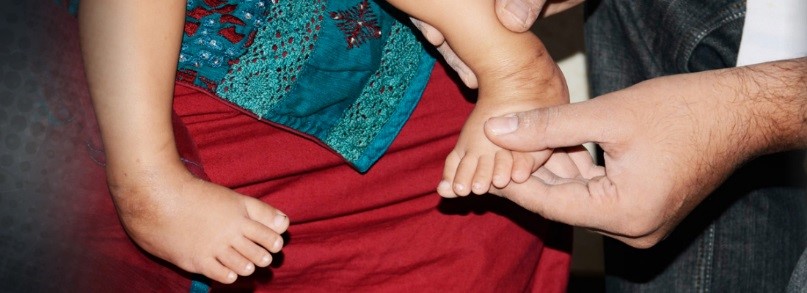
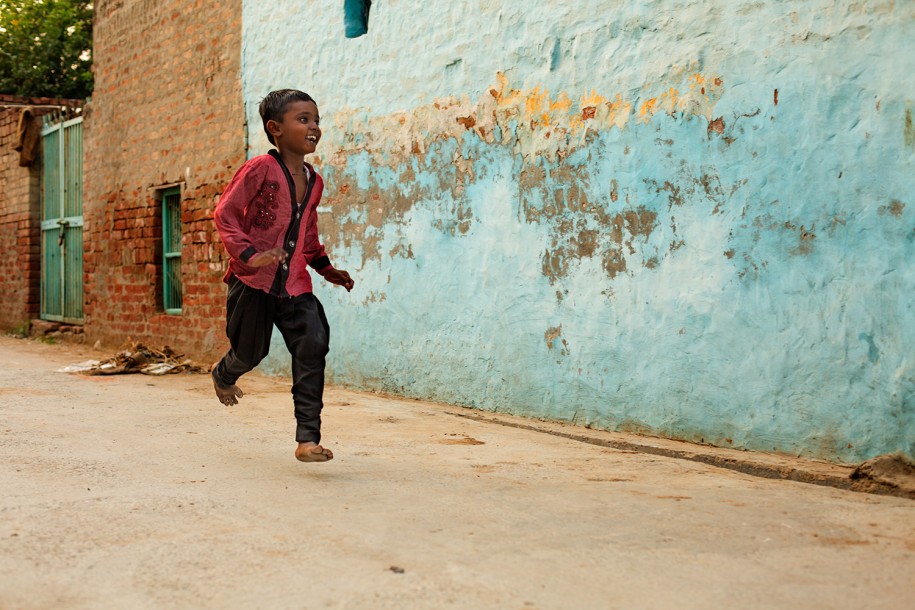
It is remarkable that in Hindi there is no word for ‘clubfoot’ and many parents mistakenly think that their child has polio. This is one of the main reasons why parents do not bother to present their children to clinic.
Since it’s inception CURE Clubfoot India Trust has partnered with state government healthcare programmes across India. It manages weekly clubfoot clinics in partnership with orthopaedic departments in government medical colleges and hospitals. Government departments commit to assigning doctors who will participate in the free clubfoot weekly clinics and ensure that the casting materials are available for the treatment. This not only helps CURE Clubfoot to establish clubfoot clinics, but also allows the CURE to reach the poorest of the poor.
CURE Clubfoot India Trust has facilitated free non-surgical treatment to over 28,000 children in 168 clubfoot clinics.
Early treatment eliminates the condition as a lifetime disability. Curing a disability eliminates a major obstacle in overcoming the challenges of growing up in a resource poor country. It helps to break the cycle of poverty by enabling the young person to play an active part in their community.

